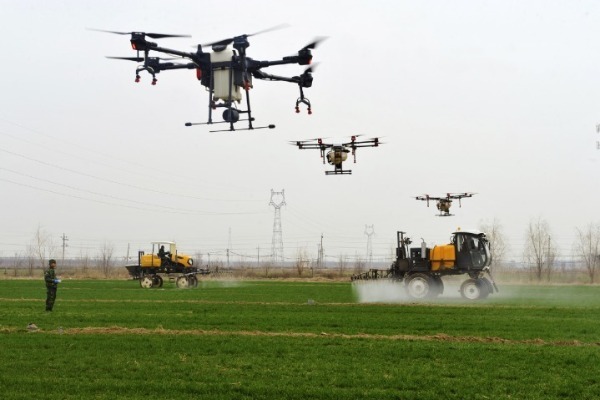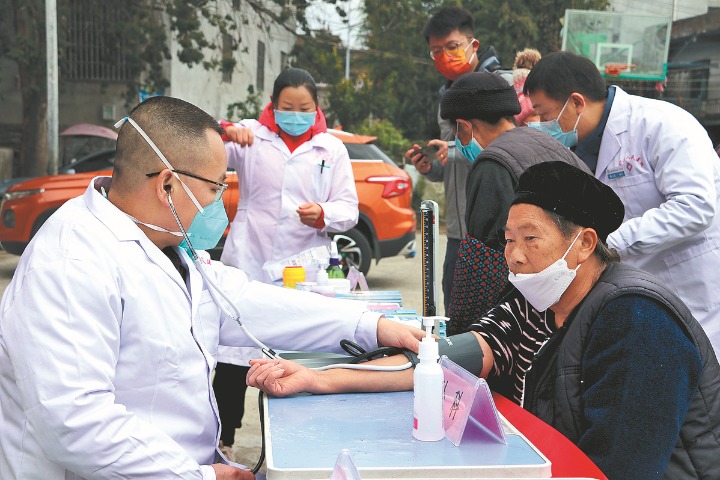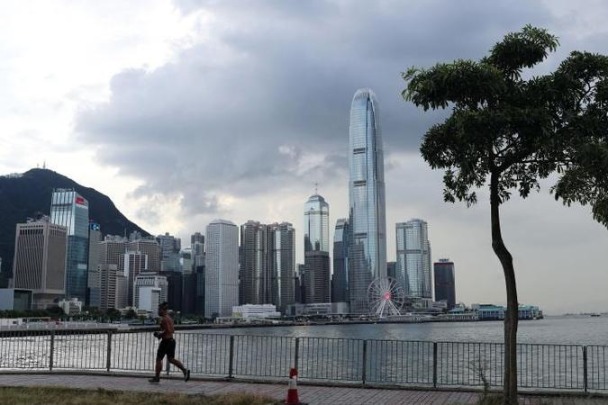How does China ensure agricultural production amid the outbreak?
It is important to note that the information provided in this Series is intended for your general knowledge only and is not a substitute for professional medical advice or treatment.

As a result of strict prevention measures such as travel and logistic bans, agricultural production in China was affected by the epidemic in terms of input supply, labor supply, technology extension and sales. In order to support agricultural development, the Leading Group of the CPC Central Committee for Novel Coronavirus Prevention and Control issued a guideline on coordinating the novel coronavirus control measures with spring plowing preparation on March 2. Here are some of the specific measures that China has adopted.
First, China promoted the resumption of production across all industrial sectors and ensured smooth delivery of agricultural supplies to unblock the supply chain. Agricultural supplies fell short as factories were closed during the outbreak. China prioritized the production resumption of agricultural materials. As of April 3, 98 percent of agricultural supply enterprises had returned to work, and 90 percent of the production capacity had been utilized. To tackle the “last-mile problem” of delivery, demands for agricultural materials were collected village by village via phones or Wechat and feedbacked to suppliers of agricultural materials. Vehicles were then specifically arranged to transport these materials to villages.
Second, China developed mechanization and social service systems in the agriculture sector to address labor shortages, minimizing the gathering of people and reducing labor demands. As of April 19, more than 70,000 farm machinery cooperatives had been engaged in spring plowing to provide such services as contract farming. It is anticipated that lands farming under the social service system will reach 200 million mu (approximately 13 million hectares) in 2020, 6 percent higher than that of last year. In many localities, farmers could rent agricultural machines in the same way as using Uber, without leaving home.
Third, China made full use of tech tools to provide technical assistance. The government took advantage of new technologies to strengthen remote agricultural technology extension, reducing the movement of technicians. For example, since late January, technicians have helped answer 410,000 related questions and posted 380,000 pieces of service records. This 24-hour service was delivered via the “China Agricultural Technology Extension” platform established by the Ministry of Agriculture and Rural Affairs. In Chaohu of Anhui porvince, over 200 technicians provided technical advisory services on vegetable planting via Wechat, phone and mobile apps.
Fourth, both enterprises and governments took active actions in helping with the sale of local agricultural products. E-commerce enterprises such as Taobao and JD launched initiatives to unblock sale channels by gathering information on overstocked agriculture products, increasing pooled procurement, increasing inputs in related logistics, lowering service fees of agriculture products and setting up a special zone for overstocked products. Meanwhile, many grassroots level officials have turned to livestreaming to help local farmers and entrepreneurs sell their products. These live sales added “an official endorsement” to agricultural products and increased the popularity. On March 15, the village livestreaming day on Taobao, more than 100 governors from counties and cities joined the live sales to promote thousands of featured agricultural products, attracting millions of viewers.
References:
[1] 4月4日,国务院联防联控机制新闻发布会
[2]http://www.people.com.cn/n1/2020/0420/c347407-31680756.html
[3] country.people.com.cn/n1/2020/0228/c419842-31609778.html
[4]https://chuangxin.chinadaily.com.cn/a/202003/16/WS5e6f2f64a3107bb6b57a6d30.html
Author: Liang Xiaomin, Center for International Knowledge on Development
Please feel free to contact us by sending your questions to question@chinadaily.com.cn or commenting on China Daily app. We will ask experts to answer them.














